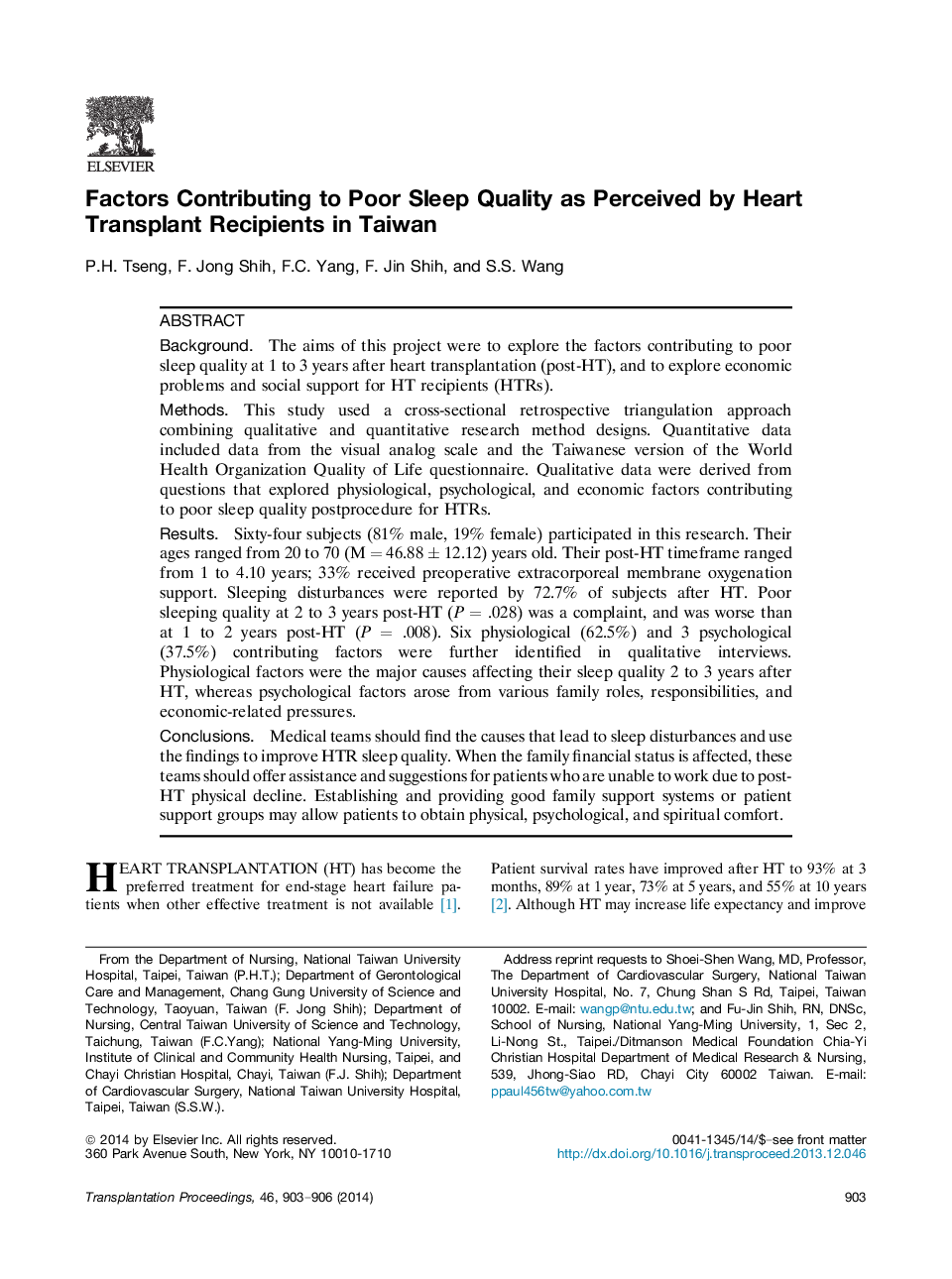| Article ID | Journal | Published Year | Pages | File Type |
|---|---|---|---|---|
| 4258423 | Transplantation Proceedings | 2014 | 4 Pages |
BackgroundThe aims of this project were to explore the factors contributing to poor sleep quality at 1 to 3 years after heart transplantation (post-HT), and to explore economic problems and social support for HT recipients (HTRs).MethodsThis study used a cross-sectional retrospective triangulation approach combining qualitative and quantitative research method designs. Quantitative data included data from the visual analog scale and the Taiwanese version of the World Health Organization Quality of Life questionnaire. Qualitative data were derived from questions that explored physiological, psychological, and economic factors contributing to poor sleep quality postprocedure for HTRs.ResultsSixty-four subjects (81% male, 19% female) participated in this research. Their ages ranged from 20 to 70 (M = 46.88 ± 12.12) years old. Their post-HT timeframe ranged from 1 to 4.10 years; 33% received preoperative extracorporeal membrane oxygenation support. Sleeping disturbances were reported by 72.7% of subjects after HT. Poor sleeping quality at 2 to 3 years post-HT (P = .028) was a complaint, and was worse than at 1 to 2 years post-HT (P = .008). Six physiological (62.5%) and 3 psychological (37.5%) contributing factors were further identified in qualitative interviews. Physiological factors were the major causes affecting their sleep quality 2 to 3 years after HT, whereas psychological factors arose from various family roles, responsibilities, and economic-related pressures.ConclusionsMedical teams should find the causes that lead to sleep disturbances and use the findings to improve HTR sleep quality. When the family financial status is affected, these teams should offer assistance and suggestions for patients who are unable to work due to post-HT physical decline. Establishing and providing good family support systems or patient support groups may allow patients to obtain physical, psychological, and spiritual comfort.
